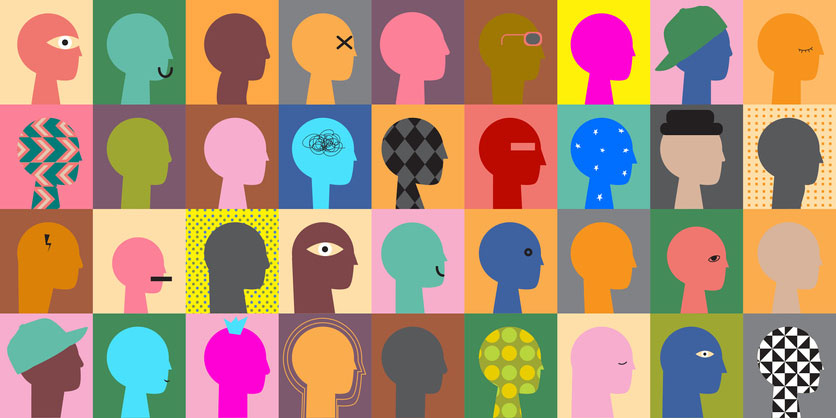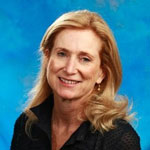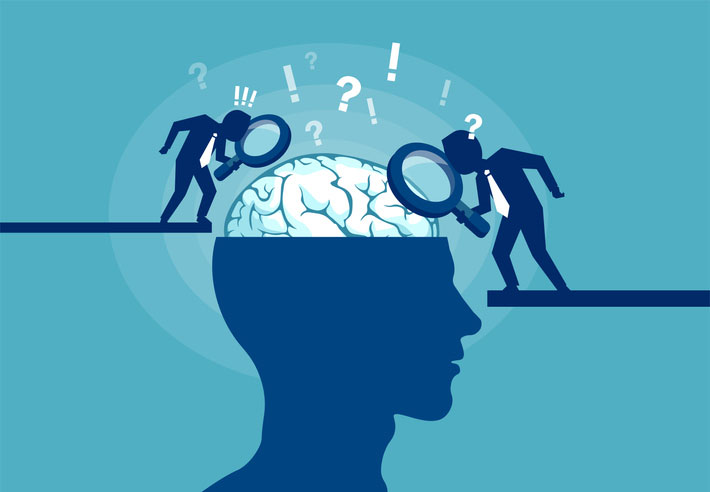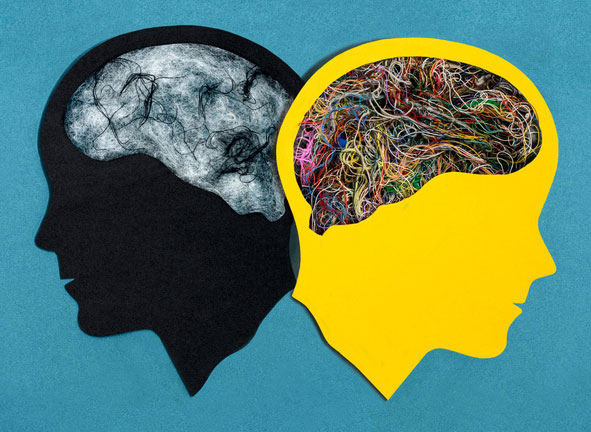It’s All About Evidence: Preparing Mental Health Counselors to Help Every Community
 Back in 2017, America’s opioid epidemic was at its deadly zenith. That year, almost 48,000 people died from overdoses involving drugs like oxycodone, fentanyl, and heroin. Some began using substances recreationally and met a dire end. Others were those battling lifelong chronic pain who developed deadly dependencies on prescription painkillers. All were struggling with addiction.
Back in 2017, America’s opioid epidemic was at its deadly zenith. That year, almost 48,000 people died from overdoses involving drugs like oxycodone, fentanyl, and heroin. Some began using substances recreationally and met a dire end. Others were those battling lifelong chronic pain who developed deadly dependencies on prescription painkillers. All were struggling with addiction.
That same year, there were close to 16,000 gun deaths in the country excluding almost 24,000 suicides by firearm. About 3,500 of those injured or killed by guns in 2017 were children and teens.
Today, those crises are far from over. As of June 2023, the Gun Violence Archive reports over 18,500 gun-related deaths. Opioid overdose numbers for the year aren’t available yet, but in 2022, the CDC reported about 83,000, crushing 2017’s supposed record number.
Susan Kleinman of Butler University says the nation’s youth and their mental health are at the frontlines of these issues:
“Even in today's Wall Street Journal above the fold, there was a big article talking about how for the first time in 15 years, there's been a significant rise in deaths among people aged 1 to 19. Gunshots are now the number one source with accidents dropping to number two. But there's been a really substantial increase in suicide and drug overdose deaths. Arguably at least three of those four causes of this big jump are directly tied to mental health issues.”
But while drugs and violence are a reality for kids and teens today, mental health services often aren’t. In fact, the National Alliance on Mental Illness (NAMI) says about 30 million Americans suffering from mental health issues go without treatment. Similarly, 94% of people who battled substance abuse in 2021 didn’t get the help they needed.
As one of the administrators behind BU’s new and entirely online Master’s in Clinical Mental Health Counseling program, Ms. Kleinman is working with her colleagues to prepare the next generation of counseling professionals to bridge this gap:
“The MS in Clinical Mental Health Counseling is really designed to be practical and applicable. We emphasize evidence-based practices and evidence-based treatments in all of our courses. We’re also making the program completely integrated from a standpoint that's called dual diagnosis, which is looking at mental health considerations and substance use considerations at the same time.”
In an interview with CareersInPsychology.org, Ms. Kleinman talked about why mental health education needs an evidence-based, multifaceted approach and how BU’s online Master’s program provides it.
 With Master’s degrees in School Counseling and Business Administration, Susan Kleinman has the experience to not only keep Butler University’s online Clinical Mental Health Counseling MS program running smoothly, but help faculty craft a relevant, evidence-based curriculum. Along with serving as manager for the school’s Licensed Mental Health Counselor program since 2014 (and helping them start an online program in 2021), Ms. Kleinman has been integral to advocating for mental health education and licensure in Indiana. She has worked with the state’s Behavioral Health and Human Services Licensing Board and published work about the integral role school counselors play in today’s often unpredictable world.
With Master’s degrees in School Counseling and Business Administration, Susan Kleinman has the experience to not only keep Butler University’s online Clinical Mental Health Counseling MS program running smoothly, but help faculty craft a relevant, evidence-based curriculum. Along with serving as manager for the school’s Licensed Mental Health Counselor program since 2014 (and helping them start an online program in 2021), Ms. Kleinman has been integral to advocating for mental health education and licensure in Indiana. She has worked with the state’s Behavioral Health and Human Services Licensing Board and published work about the integral role school counselors play in today’s often unpredictable world.
For the Here, the Now, and the Future: The Importance of Evidence-based Mental Health Education
Imagine you’re an ER doctor or nurse working on a summer weekend night. With the sweltering heat comes a spike in patients. You’re surrounded by gunshot wounds, overdoses, and car accident injuries. Your nerves of steel get you a long way, but when things get chaotic, you rely on one thing — your clinical training. The medical facts seared into your brain help you make quick, smart decisions that save lives.
Ms. Kleinman and BU faculty want to arm their clinical mental health counseling students with that same combination of clinical expertise and hands-on prowess:
“All of our courses will be oriented towards practical application in the clinical setting with an emphasis on establishing an individualized professional toolkit for the clinician. For any mental health disorder or condition, there are culturally sensitive, evidence-based treatments that are recommended and vetted. We’ll be weaving those into all of the coursework, not just into one class that's devoted to evidence based treatments or cultural sensitivity. Anytime we'll be talking about a diagnostic procedure or treatment plan, we’ll be emphasizing the evidence-based treatment for it.”
Although the course content and assignments are completely online, the program infuses numerous live interactions and personalized feedback to students. Creative and engaging teaching tools are used to build community in the online environment while solidifying the complex learning objectives of the program. So in even the most complex cases, they have a roadmap.

However, Ms. Kleinman says BU’s evidence-based approach isn’t all about learning the field’s current best practices:
“Our philosophy also applies to emerging treatments. In cases where there isn't the literature to fully back them, we’ll be very transparent about where we are in terms of research.”
In another of the program’s twenty classes, students learn how to critically assess research from a working counselor’s perspective. They’ll practice identifying common issues in mental health research, gathering data, and conducting their own independent studies. In a field where no patient is the same and best practices shift regularly, this focus on scientific rigor could very well enable students to save lives and take their profession to new heights.
Tackling Dual Diagnoses
For many people with mental health disorders, substance abuse is an important part of their story. People struggling with both at the same time have what is referred to as a dual diagnosis. In her interview, Ms. Kleinman underscored just how much dual diagnosis influences BU’s curriculum:
“One in 15 young adults in America experience both a mental health and an addiction crisis. So to adequately prepare someone to work in clinical mental health counseling, we really need to train them in addictions counseling and in substance use counseling. That’s just part of the toolkit that a graduating clinical mental health counselor needs in this world at this time.”
Classes like the introductory and advanced addiction counseling courses teach students about the biology, social issues, and behaviors that drive addiction as well as the evidence-based interventions used to overcome them. But Ms. Kleinman says these topics are a main thread in every course:
“Upon graduation, students will be eligible for both the license in mental health counseling and in addictions counseling.”
Dually-licensed counselors certainly have a lot of career flexibility. But most importantly, they’re critical to improving the quality of life for millions of dually-diagnosed Americans.

According to the Substance Abuse and Mental Health Services Administration, programs that integrate addiction and mental health services are statistically much more helpful to people with dual diagnoses than programs that offer separate services. For instance, patients in integrated programs are more likely to:
- Reduce substance reliance.
- See improvements in psychiatric symptoms.
- Avoid future legal issues.
- Find stable housing arrangements.
- Need fewer hospitalizations during and after treatment.
Graduates from dynamic programs like BU’s can be prepared to make that happen wherever they go.
It Takes a Village: Preparing Students for a Variety of Mental Health Settings
BU’s program has one clear goal: to put talented mental health and addiction counselors wherever they’re needed. Ms. Kleinman says the evidence-based curriculum is just one way she and her colleagues make that happen:
“Our approach to teaching is to encourage students to get their initial work experience in a community-based mental health facility. That's just a really great place to learn the full spectrum of mental health issues and apply the theories, techniques, and skills they learn in our program.”
In keeping with that goal, BU requires all online clinical mental health counseling students to complete 700 practicum and internship hours before graduation. Fortunately, Ms. Kleinman says the school has built relationships that enrich the student internship experience:
“Students will get to see a broad range of treatment programs — everything from residential programs for substance abuse recovery to outpatient treatment for anxiety and depression.”
But no matter which direction students feel called to take, there are experienced faculty there to help:
“The people who will be teaching and running our program are all very experienced clinical mental health counseling professionals. Some of them are more oriented towards practice and clinical settings while others are more oriented towards administration. Some have more experience in community-based settings and some with more experience in private practice.”
With such a dynamic set of resources and opportunities at their disposal, Ms. Kleinman hopes BU’s online Master’s Clinical Mental Health Counseling graduates will be poised to improve services across the nation:
“These issues are broad themes that connect all of our communities everywhere across the country. But there are also specific needs that emerge in specific communities. We want our students to have the skills to identify what those needs are and to advocate for new programs, whether that’s inside a mental health agency or at the legislative level within their state or community.”